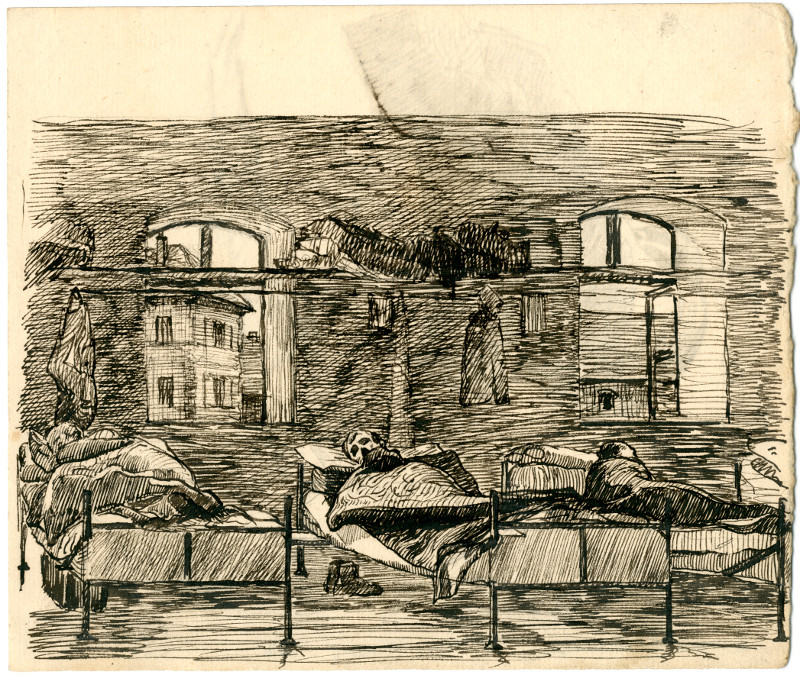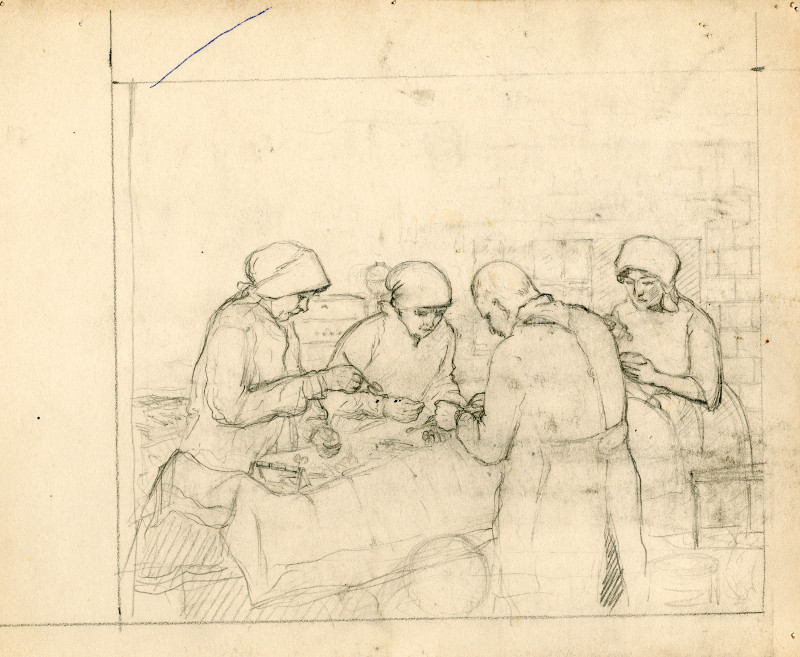In connection with the imprisonment of Gavrilo Princip in the Small Fortress and his disease, the personality of Dr. Jan Levit is to be mentioned.
Jan Levit was born in 1884 in Hořice at the foothills of the Giant Mountains. He was well familiar with the world of medicine from his childhood as his father and grandfather were esteemed doctors in Hořice. After his graduation from Charles University in Prague in 1908, he began working in a Prague surgical clinic under Prof. Kukula, an eminent teacher of Czech surgeons. In addition, he was deepening his expertise while touring Germany and Austria.
Jan Levit’s liking for Yugoslavians, especially for Serbs, brought him to Balkan at the time of impending war between Serbia and Turkey in 1912; he spent almost two years as a war surgeon in Belgrade and Nis. After his return to Prague, he passed on the acquired knowledge of new methods of treating war wounds to their colleagues, and he also made use of it during the following years of his service in the military hospital at Kolín, and from 1916 also in the garrison hospital in Terezin.
Within his two-year stay in Terezin during the First World War, Dr. Jan Levit met the already mentioned Sarajevo assassin Gavrilo Princip, who became a patient of the Terezin garrison hospital in April 1916 due to his severe disease. Jan Levit operated on him several times and judging from the doctor’s post-war memories, a friendship arose between these two men, perhaps supported also by Levit’s knowledge of the patient’s mother tongue. Until Princip’s death in 1918 the doctor showed a human approach to his patient running so the risk of losing his own status and security. Although he was reported to higher authorities several times, no action was ever taken against him.

Karel Vik: From the Military Hospital IV, PT 9174 avs, Terezín Memorial, ©Milena Jeřábková, Jiřina Komárková
In the autumn of 1918 Levit was assigned to Pardubice reserve hospital, the following year he moved to Prague, where he worked as a surgeon in several hospitals. In 1924 he was awarded a degree of senior lecturer in surgery at the Medical Faculty of Charles University, in 1928 he was appointed a distinguished professor and in 1931 he became the head of the surgical department of the city hospital Na Bulovce.
At that time he was already recognized not only as a surgeon, but also as a participant of professional medical congresses and author of numerous scientific publications. His work dealt primarily with military and war surgery, modern problems of general and special surgery, and pioneering are his contributions to Czech plastic surgery as well. He also received many awards.
In 1939, shortly after the establishment of the Protectorate, the much respected doctor had to leave his workplace Na Bulovce. The reason was Levit’s Jewish origin, although he was a faithful, not to say bigoted Catholic. Escalating anti-Jewish measures introduced by the Nazis in Bohemia and Moravia fully affected even single and childless Levit, who was put on transport AAc to the Terezín ghetto on 20th June 1942.
Jan Levit bore his second stay in Terezin with difficulties – he suffered from a lack of privacy, physical ailments including diabetes; he could not adapt to conditions in the camp. The languishing doctor in time acquired the status of a prominent prisoner, making so his life a little easier. He was even appointed a medical consultant of the hospital, yet he already worked in the surgical department only exceptionally. After almost two and a half years spent in the ghetto, professor Jan Levit was deported to Auschwitz on 12th October 1944, and there his trail ends.
Šm


